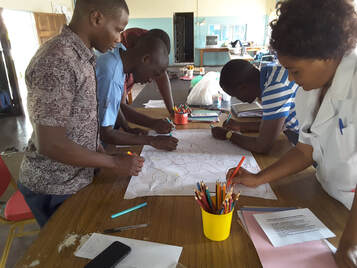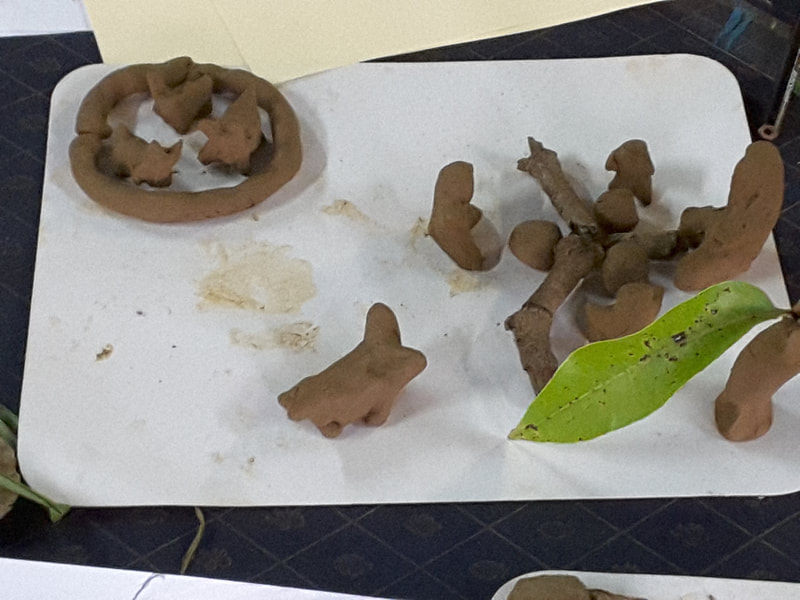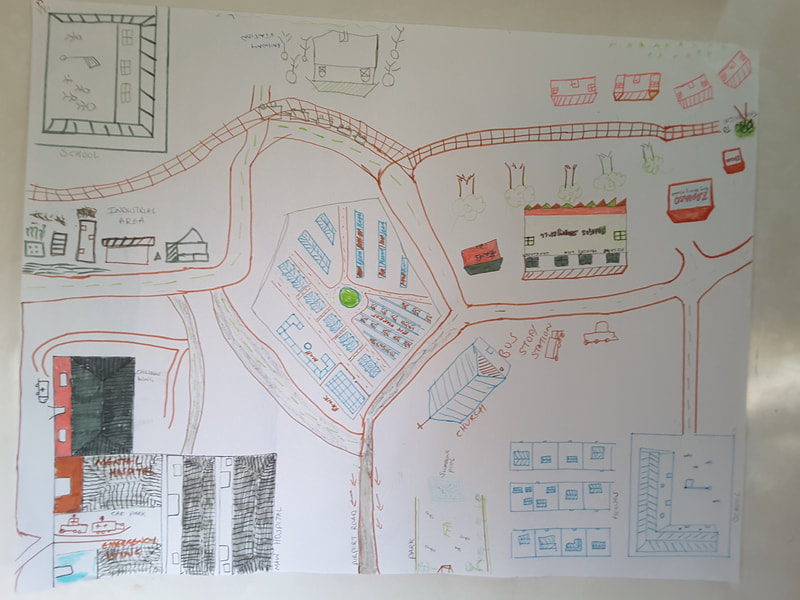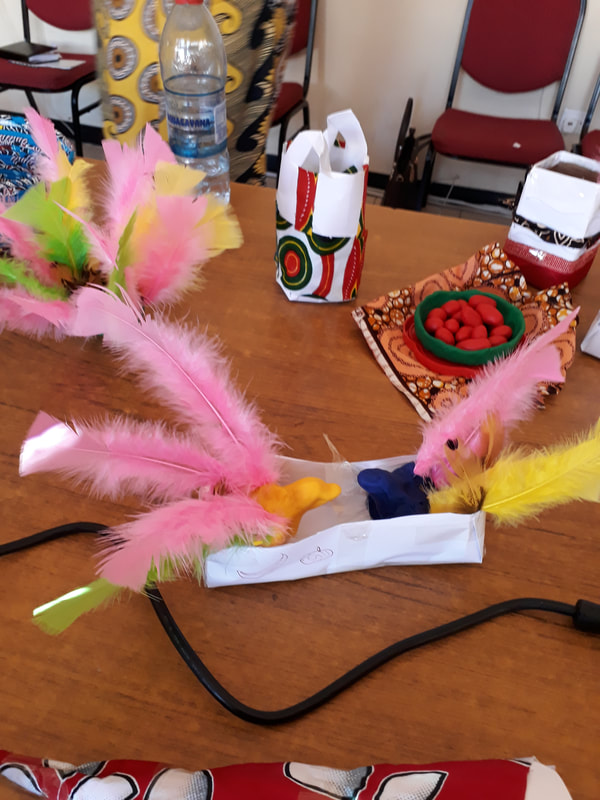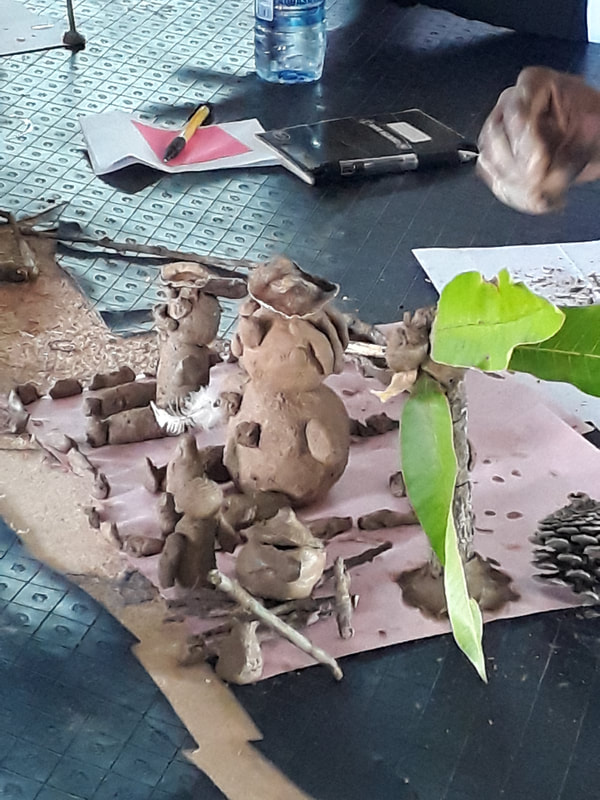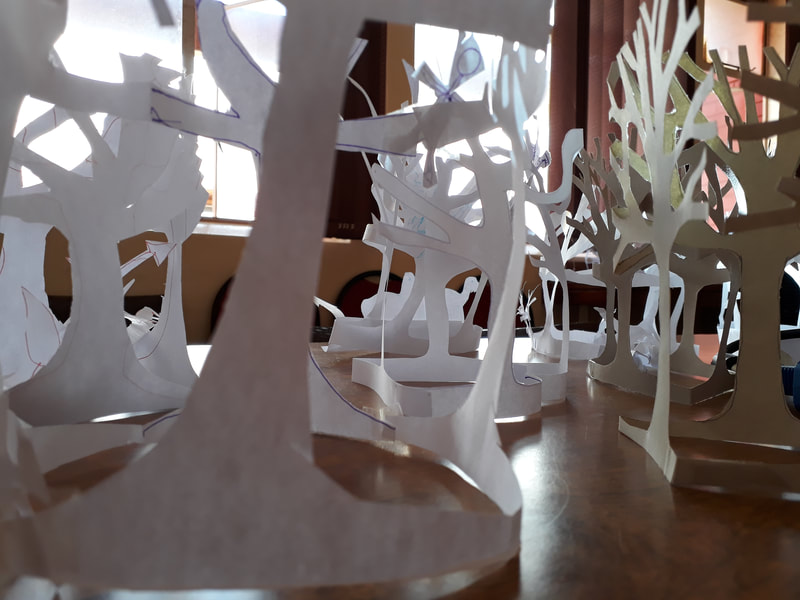ZTA’s mission is to improve the outcomes for mental health service users in Zambia through the use of our “Therapeutic Art” model in hospitals, training institutions and in the community.
|
In Zambia where poverty pervades and resources for health care are significantly overstretched, people suffering from poor mental health or illness fail to receive the care they need. To help these extremely vulnerable people, mental health professionals urgently need opportunities to learn skills so they can empower, connect with and support their recovery. ZTA Art Therapists therefore created The Zambia Therapeutic Art Course, with 250 trained by 2020.
The course is deliberately short (20 hours), low cost, done in the workplace and ‘hands on’ to ensure efficiency. It focuses on communication through art and includes exercises where participants draw, paint or make clay models alongside their patients in a nonjudgmental and accepting atmosphere. In this way, how art powerfully communicates thoughts and feelings can be experienced and understood. This process is the foundation of Therapeutic Art practice. For more information, see the training page. |
THE COURSE
‘The course is the right structure … it gives us a chance to practice the skills and build on them’ (MSc Clinical Neuroscience student UTH 2017).
'I can proudly say am able to unblock peoples’ thoughts and feelings. Just a piece of paper and pencil. I can use Therapeutic Art approaches in dealing with patients, without really struggling to have them speak or express themselves verbally. I can use art as a medium of communication and a bridge between what my patient can say and what exactly they are feeling or thinking' (Mental Health nurse).
'The course was really great, I enjoyed it, and the fact that it involved us as students actually also doing the art and revisiting our memories from the past …' (MSc Neuropsychology student, UTH).
'I can proudly say am able to unblock peoples’ thoughts and feelings. Just a piece of paper and pencil. I can use Therapeutic Art approaches in dealing with patients, without really struggling to have them speak or express themselves verbally. I can use art as a medium of communication and a bridge between what my patient can say and what exactly they are feeling or thinking' (Mental Health nurse).
'The course was really great, I enjoyed it, and the fact that it involved us as students actually also doing the art and revisiting our memories from the past …' (MSc Neuropsychology student, UTH).
USING THERAPEUTIC ART SKILLS
'I asked her what was on her mind. The implications of the drawing came out more than the oral interview that we had. It is very beneficial. It was helpful in the management in that this patient felt well contented, she felt…she was at easy and peace'. (Psychosocial counsellor Chainama Hills Hospital).
‘The patient that I used art therapy on was a 14-year-old girl. She recently found out that she lost both her parents when she was 7 and no one told her about it …she had also lost a twin sister whom she only knew about when she had grown older. She drew a picture of a young girl facing away from the sun and there was a field of flowers, but she was not enjoying. I asked her what she had drawn, and she said this is a lonely girl, she walks alone and then she started crying again. So, it was an emotional thing to see her cry, but it was also good because she expressed herself and she was able to tell me about her loneliness through the art'. (MSc Neuropsychology student UTH Department of Psychiatry).
‘The patient that I used art therapy on was a 14-year-old girl. She recently found out that she lost both her parents when she was 7 and no one told her about it …she had also lost a twin sister whom she only knew about when she had grown older. She drew a picture of a young girl facing away from the sun and there was a field of flowers, but she was not enjoying. I asked her what she had drawn, and she said this is a lonely girl, she walks alone and then she started crying again. So, it was an emotional thing to see her cry, but it was also good because she expressed herself and she was able to tell me about her loneliness through the art'. (MSc Neuropsychology student UTH Department of Psychiatry).
MOVING FORWARD
ZTA’s purpose is to enable therapeutic art to be available for all people who access mental health services throughout Zambia achieved by training trainers and collaboration with local partners so that ultimately it becomes a Zambian owned project. While most of ZTA’s work is done voluntarily, it needs funds to support the journey towards this goal.
Roll out the Zambia Therapeutic Art Course across Zambia
In Zambia ZTA works in collaboration with The Strategic Centre for Health Systems and Metrics Evaluation (SCHEME), The Ministry of Health, University of Zambia/University Teaching Hospital, Chainama Hills College of Health Sciences, Mental Health Users Network of Zambia (MHUNZA) and Zambia Federation of Disabilities (ZAFOD).
Roll out the Zambia Therapeutic Art Course across Zambia
- The aim is for Therapeutic Art to be available in every mental health unit in Zambia. 8 provinces still need training in Therapeutic Art (see context page).
- Supporting the piloting and development of a therapeutic art course which focuses on work with vulnerable children – It is well recognised that many children in Zambia suffer emotionally due to poverty, illness and loss of parents.
- Sharing their project (see publications) and collaborating with organisations to try out Therapeutic Art with other vulnerable groups of adults and children; e.g. people living with HIV, cancer care, gender based violence teams
In Zambia ZTA works in collaboration with The Strategic Centre for Health Systems and Metrics Evaluation (SCHEME), The Ministry of Health, University of Zambia/University Teaching Hospital, Chainama Hills College of Health Sciences, Mental Health Users Network of Zambia (MHUNZA) and Zambia Federation of Disabilities (ZAFOD).

